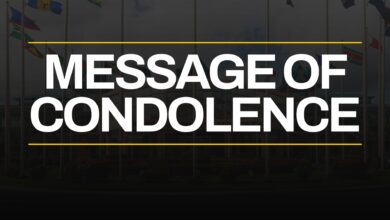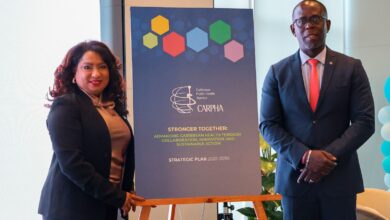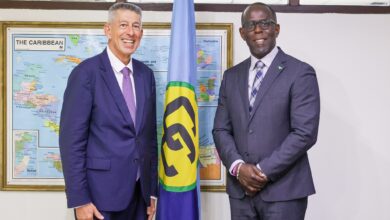(CARICOM Secretariat, Turkeyen, Greater Georgetown, Guyana) CARICOM Assistant Secretary-General for Human and Social Development, Dr. Edward Greene wants more attention paid to the social alienation of men.
Dr. Greene told stakeholders attending the Fifth Meeting of the Bureau of Women’s/Gender Affairs in Georgetown, Guyana, which started on Tuesday, that gender relations should not be perceived in the context of women’s issues only, but women’s issues as they related to the issues of males.
In this regard, Dr Greene encouraged the Bureau to pay special attention to social alienation of males which, he added, very often translated into violence against women and other social maladies.
He underscored the importance of developing mechanisms to change the attitude of men towards sex as a primary tool in mitigating HIV and AIDS. Very often, he said, the campaigns are targeting women and not the behaviour and attitudes of men.
Noting the grave impact of the global crisis on both men and women, Dr Greene told the Bureau that the CARICOM Secretariat was anchoring a response to the crisis by establishing a Task Force which was looking at a series of “very critical pathways to contending with the crisis.” One such route, he explained, was to pay close attention to the social inequities, particularly in the job market for women.
Describing as ambitious, the slate of issues on the agenda which included HIV and AIDS, Gender Based Violence, Trade and Climate Change, the CARICOM Assistant Secretary General expressed hope that the Meeting, in dealing with the issues, would do more than just creating awareness but also to devise workable solutions to addressing those issues.
The two day-meeting, which was attended by several regional and international stakeholders in gender affairs, sought to address four critical objectives: to further strengthen the institutional framework for cooperation between CARICOM Gender and Development sub-programme and the Bureau of Women’s/Gender Affairs (BWA); to identify common issues of concern for the BWA and determine a common way forward; to improve policy and programmatic coherence and coordination; and to provide a forum for exchange of experiences and ideas regarding gender and related issues.





